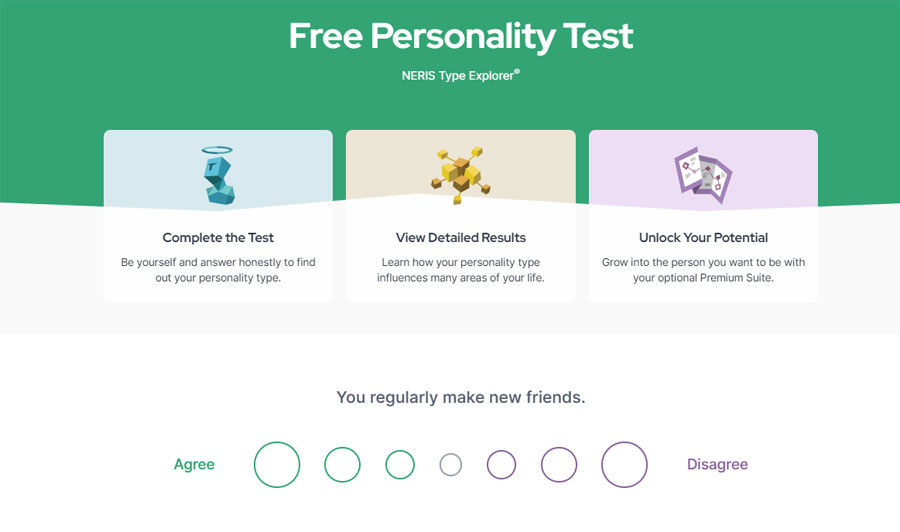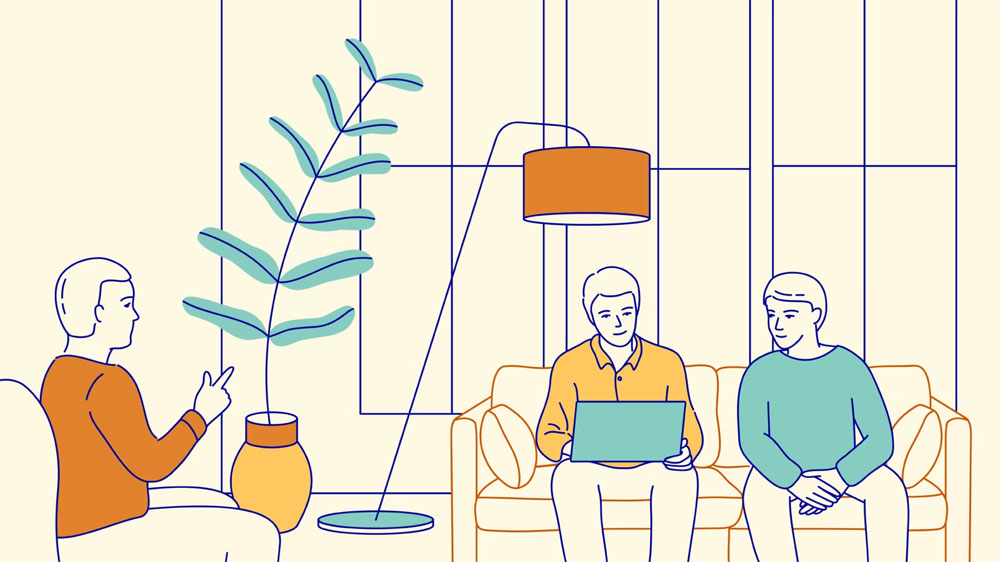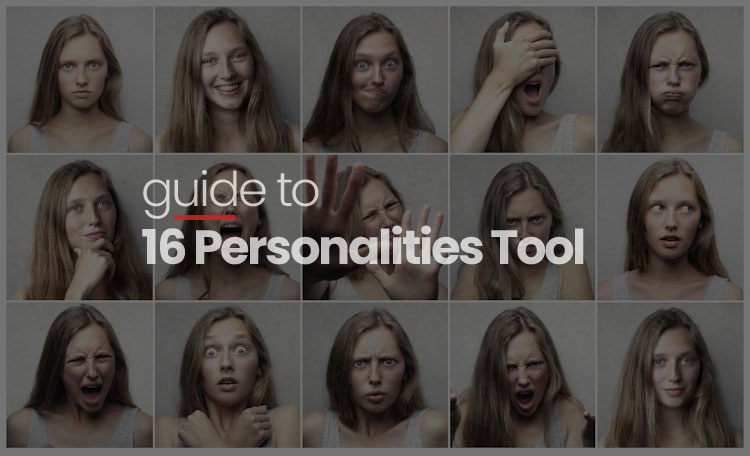Human personality is a complex creation that is woven from a myriad of traits, preferences, and inclinations. The human mind and behavior are dynamic, and there has not been a breakthrough innovation yet in deciphering the intricacies of the workings of the human mental realm that can help to understand it in its entirety.
The 16 Personalities framework emerges as a guiding light, offering a lens through which we can decipher our behavioral patterns, thought processes, and how we relate to the world. The framework categorizes people into 16 distinct personality types based on the Myers-Briggs Type Indicator (MBTI). It’s a system that attempts to capture various aspects of an individual’s behavior and proclivity. Each personality is represented by a combination of four dichotomies.
As we embark on this journey of exploration, let’s also unravel the strengths and weaknesses of the framework. Acknowledging its limitations while harnessing its benefits allows us to embrace our uniqueness while fostering understanding and harmony in our relationships.
The Dichotomies Explained

The 16 Personalities are not mere labels, but windows into the psyche’s labyrinth. The introverted souls stand juxtaposed against the extroverted firebrands, igniting connections. Delve into the cerebral chambers of thinkers, where INTJs (an acronym for Introverted, Intuitive, Thinking, Judging) deliberate meticulously, the ESFPs (an acronym for Extroverted, Sensing, Feeling, Perceiving) ride the waves of the present moment.
The logical prowess of an ISTP (Introverted, Sensing, Thinking, and Perceiving) can sometimes tread the path of detached aloofness, while the altruistic ISFJ (Introverted, Sensing, Feeling, and Judging) might grapple with self-neglect. Recognizing these dualities paints a richer canvas of understanding, transcending mere surface impressions. It is a reminder that within each polarity, a shared humanity thrives.
Unveiling the Strengths

Provides Insight: Unraveling the intricacies of your personality type can reveal a treasure trove of insights into your behavior, preferences, and tendencies. This self-awareness allows you to make informed choices in both personal and professional spheres. By recognizing your strengths and areas for growth, you can navigate life’s challenges with greater resilience and authenticity.
Boosts Communication Styles and Interpersonal Index: Understanding your personality type can be a game-changer in how you communicate and relate to others. Whether you are an outgoing ESFP who thrives on creative discussions, or an ISTJ who values structured conversations, knowing your communication preferences can foster more effective interactions. Moreover, comprehending the communication styles of those around you facilitates empathy and harmonious relationships. It’s like holding a key to decipher the unique language of each individual, forming connections that resonate deeply.
Career Guidance: The maze of career choices can often leave you bewildered, but the wisdom of the 16 Personalities can provide a guiding light. Different personalities are naturally inclined toward specific roles and work environments. For instance, an ENTJ’s (Extraversion, Intuition, Thinking, Judgment) strategic mindset might find solace in leadership positions, while an INFP’s (Introverted, Intuition, Feeling, Perceiving) creative spirit might flourish in artistic pursuits. Identifying your personality’s strengths can help align your career path with your passions, leading to greater job satisfaction and success.
Group Dynamics: The dynamics within a group can be intricate, with personalities influencing collaboration, decision-making, and overall cohesion. Recognizing the diverse strengths within a team, rooted in the 16 Personalities, allows for the optimal allocation of tasks. A mix of extroverts and introverts, thinkers and feelers, provides a multifaceted approach to problem-solving and innovation. Leveraging the unique attributes of each personality cultivates a balanced and synergistic group dynamic.
Understanding Your Social Circle: The 16 Personalities is not just about learning the hidden aspects of your own persona, but also of those you interact closely with (say, parents, partners, children, neighbors, friends, or even workmates). Try recommending the test to them, and match the results for yourself. It will not be too hard for you to guess why they think and approach things the way they do. It helps to build empathy as you put yourself in their shoes and realize for the first time how it is to perceive the world through their lens. People behave more patiently with each other when they realize that they are just wired differently and accept each other’s viewpoints without judgment.
Cons of 16 Personalities
Simplicity: At first glance, the simplicity of categorizing individuals into 16 distinct personalities seems enticing. But it runs the risk of overlooking the depths of human complexity. The rigid structure of personality typing may miss the subtleties that make each person unique. Reducing individuals to a single personality label risks oversimplifying their rich and multifaceted identities.
Lack of Scientific Validity: While the 16 Personalities model has gained popularity, it’s important to note its lack of robust scientific validation. The system’s origins lie in the theories put forth by Carl Jung and later expanded upon by Isabel Briggs Myers and Katherine Cook Briggs. However, the model’s validity and reliability have been questioned by researchers in the field of psychology. The absence of extensive empirical evidence raises concerns about its accuracy and applicability.
No Room for Change: Human beings are dynamic creatures, capable of growth and transformation over time. However, the 16 Personalities framework often implies a static nature, suggesting that individuals belong to a fixed category throughout their lives. This perspective disregards the potential for personal development, adaptability, and shifts in behavior. People might find themselves constrained by their assigned type, unable to fully embrace the changes they experience.
Confirmation Bias: Engaging with personality typing can inadvertently lead to confirmation bias — the tendency to interpret information in a way that confirms preexisting beliefs. Individuals might identify with certain aspects of their assigned personality type while overlooking or dismissing traits that don’t align. This self-selection process can limit self-awareness and hinder personal growth, as people adhere to the traits they expect to see.
Limited Predictive Power: It is by and large a descriptive tool, and not a predictive one. The results are based on self-reported psychological preferences of individuals which may seem accurate but cannot make accurate predictions.
Conclusion
The 16 Personalities can serve as a wonderful concierge in several aspects. Its results can effectively guide you in making informed decisions while choosing a career, can enhance your communication styles and relationship quotient with your loved ones, and can steer you steadily toward the path of self-discovery and personal growth.
It would still be advisable to approach it with a discerning eye because no psychological inventory is foolproof or can guarantee 100% accuracy. While the results can be used to compare characteristics of different personalities, however, no one is a stereotype. People’s personalities are subject to change and evolution, and cannot be confined to their type’s typical qualities. But it helps to know at least where you are starting.

